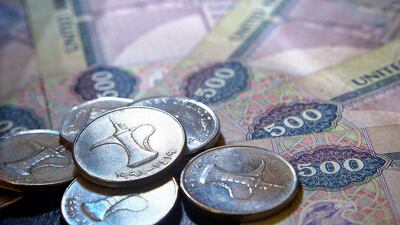A new tax law in the UAE is expected to be followed by excise and value added tax (VAT) laws that will help regulate the informal economy where cash-based businesses have to adhere to book keeping, according to lawyers.
The UAE published on Monday the Tax Procedures Law, which sets the foundations for the planned UAE tax system, regulating the administration and collection of taxes and defining the role of the Federal Tax Authority (FTA), which was established last year.
The law is focused on the collection of taxes, mainly VAT, which will be introduced at a rate of 5 per cent on January 1, 2018 and excise taxes, which will be implemented in the fourth quarter of this year.
Excise taxes would be at a rate of 100 per cent for tobacco and energy drinks and 50 per cent for sugary fizzy drinks.
___________________
Read more:
President Sheikh Khalifa appoints Director-General of Federal Tax Authority
Sheikh Khalifa issues landmark tax law for UAE
___________________
The UAE, along with the other five Arabian Gulf states, have agreed to slap VAT and excise taxes GCC-wide as part of measures aimed at shoring up government income, which has dropped as a result of low oil prices and widened fiscal
deficits.
So far only Saudi Arabia has published its VAT law, which spells out in detail what items will be subject to the levy and what items will be exempt.The Tax Procedures Law sets out the rights and obligations of the FTA and the taxpayer. It covers tax procedures, audits, objections, refunds, collection, and obligations – which include tax registration, tax-return preparation, submissions, payment and voluntary disclosure rules – in addition to tax evasion and general provisions.
This law is expected to be followed by other supplementary regulations, which could be issued in the next six months, said Shiraz Khan, a senior tax advisor at UAE law firm Al Tamimi & Company.
"With the establishment of a Federal Tax Authority at the end of last year, the issue of the Tax Procedures Law will facilitate the implementation of future taxes including VAT," said Mr Khan.
"In addition, there will be additional procedures in the tax laws themselves, for example, the VAT tax law and regulations will contain further procedures specific to VAT."
The UAE's tax system remains in its infancy, with only certain companies in the energy sector and branches of foreign banks being taxed. However, the creation of the FTA and the current publication of the tax procedures law is paving the way for tax implementation in the country and will clamp down on the shadow economy.
"The UAE is a pretty mature economy but you have informal businesses existing and the informal sector is still sizeable," said Jeremy Cape, a London-based tax and public policy partner at law firm Squire Patton Boggs
"More businesses will now have to operate above the radar rather than below it."
The tax procedures law will also change the way businesses operate.
"Businesses will be required to provide essential information to the FTA, as part of the compliance audit procedure, additionally, it will be essential to maintain financial and accounting details for five years," said Gurdeep Randhay, the head of tax and VAT in the UAE at advisory Grant Thornton.
Separately, Khalid al Bustani, assistant undersecretary for International Financial Relations at the ministry of finance, was appointed yesterday as director general of the Federal Tax Authority, with the rank of an undersecretary at the ministry.

